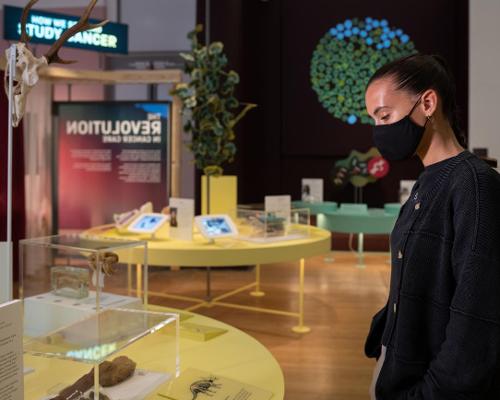26 May 2022
Science Museum's major exhibition on cancer opens to the public
BY Tom Walker

A major free exhibition on the treatment and understanding of cancer has opened at the Science Museum in London, UK.
Described as a "world-first", the Cancer Revolution exhibition reveals the past, present and future of how cancer is prevented, detected and treated.
With more than 100 objects and numerous personal accounts, the exhibition brings to life the stories of people affected by cancer and those who study and treat it, revealing how researchers, clinicians, policymakers, and patients are fuelling progress in a powerful expression of shared hope.
It features objects that have never been displayed before in the UK, including the recent discovery of the first malignant bone tumour to be identified in a dinosaur fossil and a cast from the 1950s developed to hold radium seeds for skin cancer treatment.
Created by the Science Museum Group with support from expert partner Cancer Research UK, the exhibition explores how, at a pivotal moment when one in two people will be diagnosed with cancer in their lifetime.
Katie Dabin, lead curator of the exhibition, said: "After a successful run at the Science and Industry Museum in Manchester I’m thrilled visitors to the Science Museum will get to see this ground-breaking exhibition.
"Through hundreds of objects and testimonies from clinicians and patients, Cancer Revolution tells the remarkable story of the advances in cancer treatment over the decades.
"Inside the exhibition, visitors will encounter an array of incredible objects that explore our understanding of the disease: from a dinosaur fossil that provides the earliest known example of a cancerous tumour, to the VR technology being developed to study the cells that make up tumours.
"Visitors will also discover the latest research and innovations in cancer care and will be inspired by the incredible work being done to improve early diagnosis and develop treatments to help us to live longer and better with cancer."
Close Window